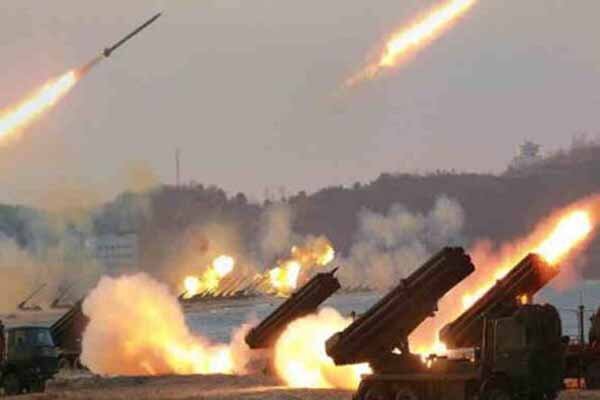Is there going to be a war between Hezbollah and Tel Aviv?

Lebanon and Palestine share a 79-kilometer-long border that has suffered from tensions at different times due to the Zionist regime’s expansionist policies. Israel’s withdrawal from southern Lebanon in 2000, was not the end of its aggression in the border areas with Lebanon, as it still has occupied parts of the country.
While Zionist Regime’s officials, especially Foreign Minister Israel Katz and Defense Minister Naftali Bennett, launches rhetoric against Iran and the Lebanese resistance, its top military and security sources are highly concerned about any war with Hezbollah.
The Zionists’ endless fear of the power of the Lebanese resistance
In a recent position, a military analyst at the Israeli newspaper Yedioth Ahronoth reported that Lebanon’s Hezbollah has become more powerful over the past decades because of Israel’s failure and weakness, and now owns 150,000 missiles.
The analyst added that the regime must now establish peace on the southern borders and prepare itself for military operations on the northern borders.
The analyst also said, “Hezbollah is now capable of launching 1500 or even more missiles a day at Israel and easily capture Israeli settlements on the northern borders. We should be prepared for possible conflict that may occur at any moment. Israel is going through a difficult phase”.
The Commander-in-Chief of the Israel Defense Rav Aluf Aviv Kochavi stated, “Peace with Hamas is a strategic necessity so that the Israeli army can confront the imminent danger by Hezbollah from the north”.
Israeli General: Israel is not ready for war
Retired Israeli General Yitzhak Brick affirmed that the Zionist regime army is not ready for war at all, insisting that the regime has been threatening by hundreds of Iranian missiles in the region.
Brick claimed that the Israeli army lacked a security doctrine, stating that one is preparing the army for two fronts and the other is supplying hundreds of tanks, and it is unclear what is the job of the security cabinet in this situation? The security cabinet has become a play thing, and today has the least real impact on the army and military doctrine. The National Security Council has not cared about the security doctrine for a long time.
Pointing out that the regime faces an existential threat, the retired Israeli general stated that in recent years, Israel has been surrounded by big and small missiles. Today, there is a possibility of firing 1500-2000 missiles weighting 500-600 kg daily into military and strategic areas.
Brick added that we are not able to respond because Israel’s air force and missiles cannot counter missile attacks. Israel’s main enemy is Hezbollah, which has great military capability.
Amos Harel, the military expert at Haaretz newspaper said that the Israeli army suffers from problems that regard ground operations as a nightmare, from which it is always trying to escape.
Harel quoted sources related to Tel Aviv as saying that the Gaza war in 2014 showed the capability of the Israeli army, the last stage of disappointing process that has begun with the 2006 Lebanese war.
According to Israeli sources, if war be launched between Hezbollah and the Zionist regime, more than half of Israelis will flee to less dangerous areas.
This is while the Zionist regime’s economy will undergo significant problems due to factories shut down, power cut, water shortage, and other war-related problems, even if other fronts be in good condition.
In addition, Israelis are concern about offshore platforms and facilities, in particular, the Tamar, Karish and Tanin gas fields, which are respectively located at 23, 40 and 10 km of the coast. The Zionists, who have incurred huge costs to support the gas platforms, are still deeply concerned.
The Zionist army has maintained its air superiority so far, but it does not perform well in terms of secret military infrastructure. The regime's air force may be able to destroy many of visible targets, but it cannot deal with the movements and armed groups that pursue attrition warfare and carry out covert movements.
The Israelis have no confidence in their military capability, and their stance indicates their horror of the power and capability of Lebanon’s Hezbollah.
Leave a Comment